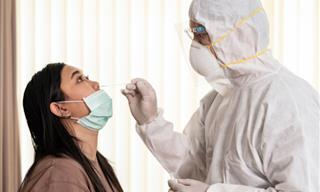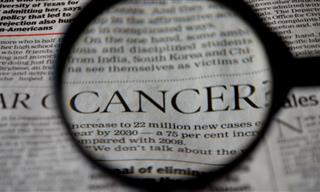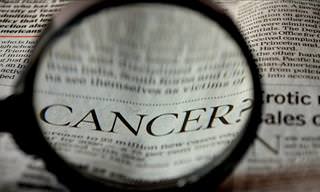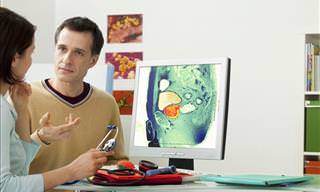Myth 1. Cancer is almost always fatal
In the 21st century, a cancer diagnosis is not a death sentence. In the past few decades, cancer detection and treatment have improved tremendously. According to a 2020 cancer report in the US, cancer rates have been consistently dropping by an average of 1.5% since the early 2000s.
The National Cancer Institute states the following: “Now, 5-year survival rates for some cancers, such as breast, prostate, and thyroid cancers, are 90% or better. The 5-year survival rate for all cancers combined is currently about 67%.”
It has to be pointed out, however, that the survival rates vary considerably depending on the type of cancer. In the UK, for example, 98% of testicular cancer patients recover, but that rate is just 1% for pancreatic cancer sufferers - states Cancer Research UK.
Myth 2. Eating sugar makes cancer grow faster
All cells in the human body, even cancer cells, use glucose (blood sugar) to grow, survive, and multiply. Glucose is the only fuel cells can essentially absorb. Since cancer cells tend to grow faster, doctors know that they devour greater amounts of glucose, and they use this knowledge in some cancer tests. But this doesn’t mean that eating sugar makes cancer cells grow at a greater speed, or that depriving yourself of sweets will slow down cancer - cancer cells will absorb more glucose no matter what your diet is.
Of course, there are plenty of good reasons to avoid a high-sugar diet, including a higher risk of diabetes, obesity, and a higher RISK of developing esophageal cancer. However, if you or someone you know has already been diagnosed with cancer, cutting out sweet foods is unlikely to make a difference.
Myth 3. There is no cure for cancer
Cancer will not necessarily come back. In fact, certain types of cancer can be effectively cured even at advanced stages. “In addition to curing advanced testicular cancer and lymphomas (Hodgkin’s disease and non-Hodgkin lymphomas), we usually expect to cure most early forms of breast, colon, prostate, and skin cancer, including melanoma,” says Dr. Michael McNamara, a registered oncologist to the Cleveland Clinic.
Treatments are more effective now than ever before, and most cancer types are treatable. Unfortunately, not all types of cancer can be cured completely - it all depends on the type of cancer and the stage of the disease. That said, even the scariest cancers like stage 4 melanoma, breast cancer, and stage 4 colon cancer with metastases in the liver have more than 40% chance to be cured completely with a combination of chemotherapy and surgery - so says Prof. Anton Bilchik, a surgical oncologist and chief of medicine at Saint John’s Cancer Institute in Santa Monica, California to Medical News Today.
Myth 4. Most cancers are hereditary
Most of us are aware that cancer develops as a result of malignant mutations in the DNA. However, only a small percentage of cancers occur due to inherited genetic mutations. These cancers are known as “familial” or “hereditary,” and they account for roughly 5-10% of all cancers.
Most cancers are “non-hereditary,” meaning that they are caused by genetic mutations that occur as a result of aging, harmful habits like smoking and alcohol, or factors like X-ray radiation or exposure to harmful chemicals. Likewise, even people who have a strong family history of cancer can prevent cancer by leading a healthy lifestyle and undergoing regular screenings.
Myth 5. Biopsies and cancer surgery make cancer spread
This myth is actually partially true. It is correct to assume that improperly conducted surgery could potentially lead to the spread of cancer, but there are so many protocols and precautions to cancer surgery that the chances of that happening are extremely low. The advances in imaging and treatment reduce this risk even further.
As stated by the National Cancer Institute, “The chance that surgery will cause cancer to spread to other parts of the body is extremely low. Following standard procedures, surgeons use special methods and take many steps to prevent cancer cells from spreading during biopsies or surgery to remove tumors.” Biopsies, too, are not a cause for concern. A study from 2015 of over 2,000 participants dispels the misconception that tumor biopsies lead to cancer spreading.
All in all, the benefits of biopsies and surgery far outweigh their risks.
Myth 6. Cancer always requires urgent treatment
Even we were surprised to learn this, but the best course to choose in some scenarios is an approach doctors call “watchful waiting.” Cancers that grow very slowly, such as certain prostate cancers, lymphomas, and leukemias, are observed before treating or managed with medication rather than surgery or chemotherapy. In other cases, cancer may not be the primary threat to one’s health, in which case, doctors can also choose to treat another health issue first before addressing cancer.
Needless to say, all this doesn't mean that you shouldn't see a doctor as soon as you notice any pain or any other signs of cancer. Only a professional can decide which cancers must be treated, as well as when and how the treatment should be administered.
Myth 7. Cancer can be contagious
You cannot catch cancer from a person who has it - this is a complete myth. So don’t be afraid to visit or touch a family member or friend if they get diagnosed. That being said, there are a few, albeit indirect, ways one can get cancer from another person.
Some viruses can increase one’s risk of cancer. Women who have contracted the human papillomavirus (HPV) is linked to cervical cancer, hepatitis B or C raises the likelihood of liver cancer, and the Epstein-Barr virus raises one’s risk of certain lymphomas, nose-, and throat cancer.
In addition, one can technically get cancer as a result of organ or tissue transplantation if the donor had cancer in the past. However, this kind of transplant-related cancer is very rare because doctors never use organs or tissues from donors with a known medical history of cancers.
Myth 8. The many mythical causes of cancer

There’s a wide variety of misconceptions surrounding everyday activities and objects that supposedly trigger cancer. Believing these myths can cause a lot of unnecessary stress and anxiety, which, unlike phones and deodorants, do impact your health in a negative way. Here’s a list of items wrongfully attributed to cancer:
- Smartphones, power lines, and microwaves
X-rays can increase one’s risk of cancer, but the radio waves your phone and other home devices emit are different and don’t come with the same risks. These waves are called non-ionizing radiation, and they produce extremely low frequency (ELF) magnetic waves that cannot damage genes.
As the American Cancer Society concludes, “Several large studies have looked at the possible effects of ELF magnetic fields on cancer in rats and mice. Most of these studies have found no increase in the risk of any type of cancer. In fact, the risk of some types of cancer was actually lower in the animals exposed to the ELF radiation.”
Artificial sweeteners like sucralose, aspartame, saccharin, acesulfame potassium, and neotame have been tested several times and deemed safe and not linked to cancer. For example, a massive study with over half a million participants has detected no link between aspartame and brain cancer, lymphoma, and leukemia. In addition, all of these sweeteners are also approved by the FDA, so you needn’t worry about using them occasionally.

Getting a root touch-up every month or so will not increase your risk of cancer. While there is some evidence suggesting that daily exposure to chemicals like hair dyes can raise the risk of bladder cancer, we can all agree that most of us don’t dye our hair on a daily basis. This research is relevant mostly to hairdressers and barbers who work with hair dye every day, and regular consumers shouldn’t be concerned about using these products.
- Deodorants and antiperspirants
Some people believe that antiperspirants and deodorants increase the risk of breast cancer. This myth comes from a study in which aluminum was found in the breast tissue of women who used antiperspirants that contain aluminum, or from test-tube studies in mice and hamsters. However, the presence of aluminum in the breast tissue doesn’t increase the risk of breast cancer - indicates a large review study from 2008 and a more recent analysis from 2021.
We hope that you found this article informative and useful. We wish you strong health!
Share this post with those who will find it useful!
 Go to BabaMail
Go to BabaMail

































